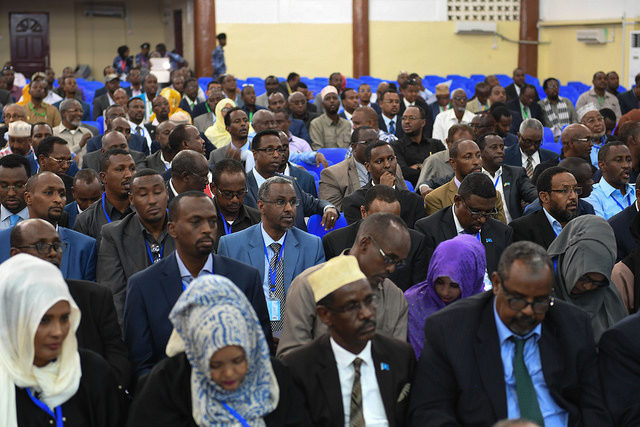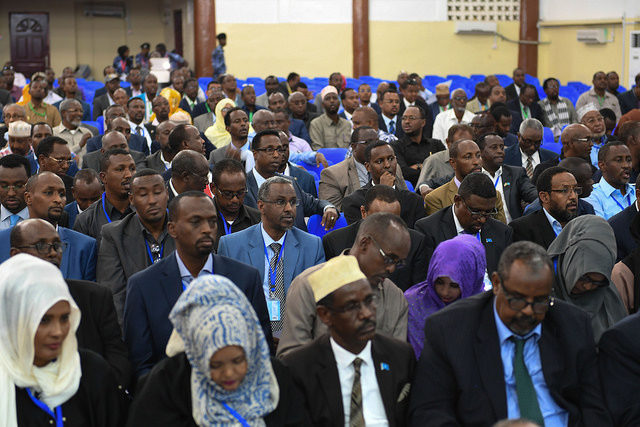Parliament approves 2017 budget, revises upwards by $14m


Parliament Sunday approved the revised 2017 national budget with an increase of $14 million to the recently revised budget giving the Finance Minister authority to spend $260 million up from $246 million.
Out of 169 MPs present, a majority, 167 endorsed the 2017 Appropriations Act which allows the Minister of Finance to draw funds from the exchequer. Two lawmakers abstained.
Finance Minister Abdirahman Beyle had revised the budget first presented to the House April downwards from $267 million conspicuously missing being expected bilateral funding from Saudi Arabia. In the April Budget, the minister had factored in $5 million from Saudi Arabia which was a decrease of 75% ($15 million) from last year’s $20 million. It was not clear if the Gulf Crisis which Somalia opted for a neutral position could have informed this change.
Fiscal trap
The approval of the budget comes as the World Bank calls for robust tax reform to boost domestic revenue which currently stands at 2% as a ratio of the country’s GDP. The Somali Economic Update report last week by the World Bank warns against over-reliance on foreign support noting that without some reforms Somalia will remain in a fiscal trap.
A combined short, medium and long term reforms heading up to 2022 could see the country’s domestic tax revenue to GDP ratio rise to 13% ($1.1 billion), the World Bank said. The Bank proposed increases in customs duties with a uniform value based tax of between 5-8%, temporary export tax of 5% on livestock and introduction of sin tax which covers items such as khat, cigarettes, gasoline, diesel fuel and motor vehicles at a rate of 10-50%.
RELATED: World Bank: Tax reform critical to sustainable growth
A $40 airport usage fee which nets all users including UN and diplomatic staff could earn the country $10 million annually in addition a $100 visa fee. The Minister in the just approved budget proposed a $20 departure fee on all airport users but retained the $60 visa as currently charged.
Income tax from the private sector has remained a difficult part in the budget to implement given the inadequate capacity of government to enforce the rules. The 2017 Appropriations Act set July 1, 2017 as the official date to implement the income tax rule which sets out a rate of between 0% to 18% tax on salaries. Those earning $200 and below are exempt from tax while any amount between $201 and $800 attracts a 6% tax. Earners of between $801 and $1,500 will pay 12% tax while $1,501 and over will be charged at 18%.